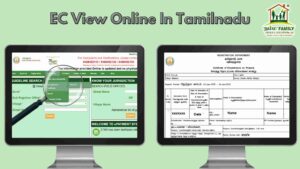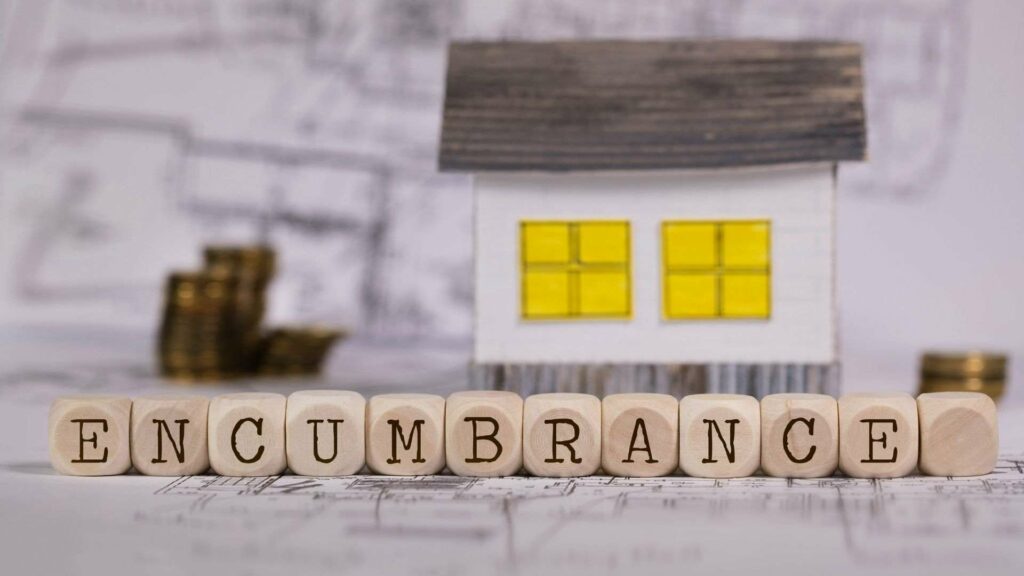
What Is An Encumbrance Certificate Meaning In Tamilnadu?

- Purchasing a property (land or house) is one of the most important decisions you will ever make.
- Purchasing property by knowing encumbrance certificate in Tamilnadu entails significant financial investment and is a significant financial decision. It’s also an emotional one!
- Buying a real estate property in India, whether for the first time or as an experienced owner, is not a simple undertaking.
- It necessitates a significant amount of research on your part, as well as the verification of numerous property papers.
- An Encumbrance Certificate meaning in tamil, often known as the EC, is one of the most crucial documents that you must apply for and things to check before buying a plot.
- An EC is required not just when purchasing a home, but also when applying for a home loan or taking out a loan against it.
Encumbrance Certificate Tamilnadu Meaning
- An Encumbrance Certificate Meaning in Tamil (EC) is a vital document that serves as verification of a property’s free title/ownership.
- When buying or selling a home, or applying for a home loan or a loan against a home, the document is necessary to prove that the property is free of any monetary or legal problems.
- The lender will apply a “Lien” or charge on the property if it is purchased with a mortgage or if it has been pledged.
- This will prevent the borrower/property owner from selling the property until the debt is fully paid off.
- An Encumbrance Certificate in tamilnadu is a legal document for buying a plot that will tell you whether there have been any financial or legal changes to the property.
- You can get an EC by going to the appropriate sub-office. Registrar’s
- An encumbrance is a charge placed on any asset, but it is most commonly used in the context of real estate.
- If you’re wondering how you can receive this information as a buyer,
- An (EC) can help you figure out if the property has any charges against it.
- An EC is required for a buyer to not only protect his legal title to the property, but also to be eligible for loans from most banks and financial organizations, whether for or against it.
What Is The Significance Of the Encumbrance Certificate Tamilnadu (EC)?
- When buying a property you must check that a property has a clear title before purchasing it
- Obtaining an Encumbrance Certificate tamilnadu guarantees that the property you seek to purchase is free of any financial or legal obligations.
- If you find a charge on your EC, it is critical that you correct it before proceeding with your transaction.
- It will also assist you in determining whether there are any existing owners who are legally entitled to claim the land.
- Aside from that, if you want to get a loan to buy a house, an EC will be one of the pieces of paperwork you’ll have to show to your lender.
- The following points express the significance of an EC:
- Customers must look for any encumbrances that may transfer to them along with the property owner when purchasing a property because it is a large financial investment.
- Obtaining an “EC” for a property (Occupancy Certificates) assures a buyer that the property is free of encumbrances.
- There are no longer any monetary or non-monetary liabilities on the property, such as liens, outstanding loans, or leases.
- Since the paperwork is also required when applying for a loan against property dealer near me or a house loan,
- Customers should obtain the document not only to ensure that the property’s legal name is protected but also to ensure that the buyer is eligible for the loan.
- The EC is also likely to be required in the following situations:
- To obtain a mutation The paperwork is presented for Khata Registration, Khata Transfer, and Patta.
- The certifications are given to the Village / Panchayat Officer to replace the land tax records if the requisite property or land tax has not been paid for more than three years.
- To use PF to purchase, build, or renovate a home.
Encumbrance Certificates Come in Different Types
There are two types of encumbrance certificates:
Form 15,
- The sub-office registrar issues an encumbrance certificate on Form 15,
- The applicant has requested a certificate, a property has any encumbrances during the time period,
- In most cases, Form 15 will include all of the details about an inheritance, sale, purchase, lease, mortgage, gifting, relinquishment, and the partition of the property in question.
Form 16,
- The sub-office registrar issues a nil-encumbrance certificate on Form 16,
- If a property has not recorded any encumbrances throughout the time period for which the applicant has requested a certificate,
- While an encumbrance certificate tamilnadu provides all the transaction facts pertaining to a property, it may not be sufficient to establish ownership.
- As a result, buyers should get a possession certificate in addition to an EC.
How Can I Get a Certificate of Encumbrance on property?
- The EC of property can be obtained at the office of the sub-registrar where the property in question is registered.
- The following procedures must be followed in order to get an encumbrance certificate:
- Form 22 must be submitted to the registrar in order to acquire the certificate.
- This form is available on each state’s official land registration website.
- This application will be accompanied by Rs. 2 stamp paper, an attested copy of the address proof, the reason for the certificate, and property and title information.
- Along with the application, a person must also pay the required fees.
- Following the filing of the application, an inspector will examine all transactions made against the property during a specific time period.
- On Form No. 15, detailing all transactions within a given time frame, following the examination, the sub-registrar will issue an encumbrance certificate.
- A NIL encumbrance certificate tamilnadu if no transactions occur on Form No. 16 will also be issued.
- A certificate normally takes 15 to 30 days to be issued from the date of application.
- The payments for the encumbrance certificate are mandatory and it required to begin at Rs.100 and will increase depending on the number of years.
- Furthermore, fees differ according to state norms and regulations.
- The certificate is issued in the regional language, but an English translation can be ordered for an additional cost.
- As proof of ownership of the property, it is recommended that a person obtain both an encumbrance certificate and a possession certificate.
The Relevance Of A Non-Encumbrance Certificate
- When buying a property, It states that a property is free of all legal and financial liens on a non-encumbrance certificate.
- For example, it would show you if the seller has committed it to a bank.
- It shows how many times the property has passed through different hands since it was initially created.
- And this certificate also shows who the current owner is.
- You’ll know you’re dealing with a trustworthy vendor who isn’t in any legal or financial trouble When you obtain this paperwork.
- Any property generally says that the property is free of any legal or financial obligations For a non-encumbrance certificate.
- A property with a financial encumbrance, such as one on which the owner is currently paying a home loan, has a financial encumbrance.
- And until the loan is fully returned, obtaining a non-encumbrance certificate for such a property would be impossible.
- A municipal body will also be unable to issue a non-encumbrance certificate for a property that is the subject of a legal dispute.
How to Check an Encumbrance Certificate Status
- The processes for checking the progress of your EC status of application vary depending on the website.
- You can track the status of your application on the government website – https://tnreginet.gov.in/ that allow you to apply for an encumbrance certificate tamilnadu online.
- Under the “Certificate” menu, select “EC Status” from the “Encumbrance Certificate” option.
- Enter the Transaction ID you were given when you submitted the application, fill out the captcha, and then click “Check Status.”
- With the option to download it in PDF format, The certificate will appear on the screen.
How Long Will it Take an Encumbrance Certificate Take to Arrive?
- As previously stated, the procedure for obtaining an EC varies by location.
- If you apply for an EC online, however, you will receive it sooner.
- Online applications typically take 1 to 2 business days to process.
How to Get Your Property's Encumbrance Certificate
- As previously stated, you will be able to download the file after it is generated if the corresponding State Government website allows you to track the status of your EC application online.
- Obtaining an Encumbrance Certificate tamilnadu Requires the Submission of the Following Documents
The following are some of the documents you'll need to apply for an Encumbrance Certificate:
- Details on the property and its title document.
- If a previous deed has been executed, the property sale deed/gift deed/partition deed/release deed.
- If a deed has been created for the property, a copy of it.
- The date and book number, as well as the applicant’s signature, are included in the deed number at the time of registration.
- Document for registering property.
- The applicant’s proof of address is required.
- To learn more about the Encumbrance Certificate in your area, please contact the local sub-registrar’s Office.
- Details of the property for which he is requesting an EC under his signature
When do you need an encumbrance certificate?
- The sub-registrar in whose authority the unit is located issues the encumbrance certificate tamilnadu for the property.
- Essentially, this is the office where the current and prior owners registered the property at the time of purchase.
- The sub-office registrar issues an EC View that contains all of the property’s information, including its owner, transfer of ownership, mortgages, and so on.
- In general, an encumbrance certificate tamilnadu is required in the following situations:
- For property mutation, use EC Encumbrance Certificate,
- Following the purchase of a property, the owner must have the ownership transfer recorded in the official records via property mutation.
- EC Encumbrance Certificate For Apartments,
- When buying a property, a non-encumbrance certificate is required to prove that you are dealing with the right person and that there are no outstanding loans on the property.
- EC Encumbrance Certificate for mortgages
- When you apply for a house loan to purchase a home, banks will often want an encumbrance certificate before accepting your application.
- EC Encumbrance Certificate for the removal of PF,
- If you use your provident fund to make a down payment on a house, your employer will seek the EC.
- EC for the sale of a flat
- When selling a home, the seller must apply for and obtain the paperwork from the government’s records in order to display it to the buyer.
Without Going Online, How to Get an Encumbrance Certificate
- You can also apply for an encumbrance certificate over the phone.
- You must submit a written application along with the relevant documentation to the sub-registrar office for this.
- These documents contain evidence of address, property information, and title information.
- A registration fee would also be required. The officials will verify the validity of the submitted documents after they have been reviewed by the officials.
- Within a month of applying, an encumbrance certificate tamilnadu is issued.
- Additionally, you will be given a reference number.
- You can use this reference number, also known as an acknowledgment number, to follow the progress of your encumbrance certificate.
In Tamil Nadu, How Can You Apply For An Encumbrance Certificate Online?
- A certificate of encumbrance is normally obtained from the sub-registrar office of the area in which the property is located.
- However, it is also available online at the Tamil Nadu Government’s registration department’s official website.
- By following the instructions below, you can obtain your encumbrance certificate online.
1st step:
- To begin, you must first log in to the registration department’s official website.
- You must first create one, If you do not already have an account,.
- You must give information about your identification number while creating an account. Eg. This might be your PAN or driver’s license,
2nd Step:
- You must go to the homepage after logging in or registering, and then select the encumbrance certificate option.
- Then, using the search function, apply for an encumbrance certificate.
3rd step:
- Fill in the relevant information, including the location, survey data, time, house details, and other facts.
- A Comprehensive Guide to Form 26qb
- You must specify the zone, district, and sub-registrar office of the area where the property is located in the location section.
- Add the encumbrance certificate’s start and end dates to the time section.
- Fill in the village name, survey number, and subdivision number in the survey details section.
- The plot number, flat, door number, wardrobe number, boundary data, build-up area, and property extend are all included in the house details
- The old ID survey number, old door number, proclaimed owner, father’s name, and any registration documents you may have are all further facts.
4th Step:
- After you’ve filled out all of the essential information, hit the search button.
- Then, to continue, select the option to apply online.
5th Step:
- Fill in your name and contact information, then choose a payment method.
- Fill in the payment information and select a payment method.
- To make a payment, fill in the e-payment information and select your bank
6th step:
- Provide your bank reference number, as well as the transaction details, when you’ve completed the payment procedure.
- Your specified login information in the form of a QR code, The encumbrance certificate will be emailed to you.
- And after the officials have approved it, you will receive a notification SMS.
- You can also monitor the status of your certificate in the request lists section of the encumbrance certificate section of the website.
- This option is part of the E-services category.
- The application procedure takes about 2-3 business days to complete.
How to Check an Encumbrance Certificate Online Tamilnadu,
- Check your encumbrance certificate online tamilnadu by logging on to the registration department’s official website.
- After that, select E-services from the drop-down menu.
- Choose the encumbrance certificate option, and then check your certificate in the requests area.
- You can use the same process you used to apply for the certificate online to find the relevant area.
Conclusion
- If the property in question has a mortgage, you can find out about it when you take EC.
- The sub-office registrar where the deed was registered can provide you with an encumbrance certificate. (An EC can also be obtained online in some states.)
- An encumbrance certificate tamilnadu lists all of the transactions that have occurred on a certain piece of property.
- The processes for checking the progress of your EC application vary depending on the website.
- You can track the status of your application on most government websites that allow you to apply for an encumbrance certificate online.
- The encumbrance certificate is one of the most important legal documents that prove you lawfully own the property.
- In Tamil Nadu, however, it is commonly referred to as a “villangam” certificate.









This Post Has 24 Comments
Hello.This post was really fascinating, particularly since I was browsing for thoughts on this subject last Friday.
Thank you for taking the time to give us your valuable feedback
Hello! I’ve been reading your website for some time now and finally got the bravery to go ahead and give you a shout out from Humble Tx! Just wanted to tell you keep up the excellent work!
We sincerely appreciate your positive feedback.
This is the precise weblog for anybody who wants to find out about this topic. You realize so much its virtually onerous to argue with you (not that I actually would need…HaHa). You undoubtedly put a new spin on a topic thats been written about for years. Nice stuff, just great!
Thank you for taking the time to leave us such a fantastic review! Your satisfaction is our priority,we pride ourselves on our exceptional service
Hello. impressive job. I did not anticipate this. This is a impressive story. Thanks!
Thanks for providing us with detailed feedback about our service.
Sometimes it’s a pain in the ass to read what website owners wrote but this internet site is rattling user pleasant! .
Thanks for your feedback; it is much appreciated.
I got good info from your blog
Thank You So Much For Your Comment
A big thank you for your article.Thanks Again. Keep writing.
Thanks for your feedback
Thanks for sharing excellent informations. Your web site is so cool. I am impressed by the details that you have on this blog. It reveals how nicely you understand this subject. Bookmarked this website page, will come back for extra articles. You, my friend, ROCK! I found just the information I already searched everywhere and simply couldn’t come across. What a perfect website.
Thanks For Your Fantastic Review
You are a very bright person!
Thanks for your good review.
What a great blog post! I learned a lot from it.
Thanks for your great words.
What a great blog post! I learned a lot from it.
Thanks for your great feedback.
What a great blog post! I learned a lot from it.
Thank you so much for your great comment.